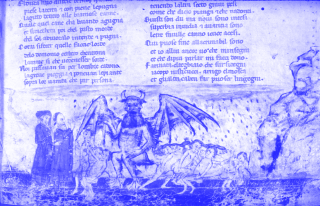
Freigeist Junior Research Group
The Dantean Anomaly (1309–1321): Rapid Climate Change and Late Medieval Europe in a Global Perspective
The so-called Great Famine (1315–1321) unleashed the greatest trans-European famine of the last millennium, a devastation that was part of a period of rapid climate change termed the »Dantean Anomaly«. This eponymous Freigeist project examines the decade of 1310 as the tipping point from the Medieval Climate Anomaly to the Little Ice Age for northern Italy, south-eastern France and east-central Europe. These regions, as yet barely researched from a climate-historical perspective, offer a multitude of fiscal, administrative and narrative sources for study. The project is concerned not just with reconstructing extreme meteorological events and their socio-economic impact, but with the vulnerability and resilience of the affected societies, which reacted very differently in accordance with their pre-existing economic and political conditions. All three case studies reach beyond narrowly defined historical research to integrate data from the natural sciences.
The Freigeist project on the »Dantean Anomaly« thus shows that making use of humanities research strongly facilitates the reconstruction of historical climate change and the comprehension of its societal consequences. Moreover, the project opens a wider perspective: trans-regional comparisons illuminate the significance of natural factors in the »crisis of the 14th century«. The results of the three European subprojects will be compared with similar research on the Middle East and East Asia, revealing a global dimension to the late-medieval climate deterioration, which confronted societies outside of Europe with their own challenges as well. The Freigeist project can thus serve as a pioneering study of a global environmental history of the pre-modern age.
Led by climate historian Martin Bauch, the Junior Research Group »The Dantean Anomaly« is working on three subprojects. A comparison of three regions completes the pan-European panorama of the period’s climate change and the »Great Famine«, revealing the cultural patterns that may have made late medieval Europeans susceptible in the face of rapid climate deterioration.
Martin Bauch examines the interaction between extreme meteorological events and adaptation processes in reference to political processes, institutions and infrastructures of Northern and Central Europe in the years 1309 to 1321.
Undine Ott researches the climate history of the Middle East in the 13th and the 14th century: extraordinary weather events and their social, economic and political ramifications.
Annabell Engel concerns herself with Central Europe east of the Rhine into today’s Poland and Czech Republic. In her study, she supplements narrative sources with a particular focus on documents, account books and inscriptions.


